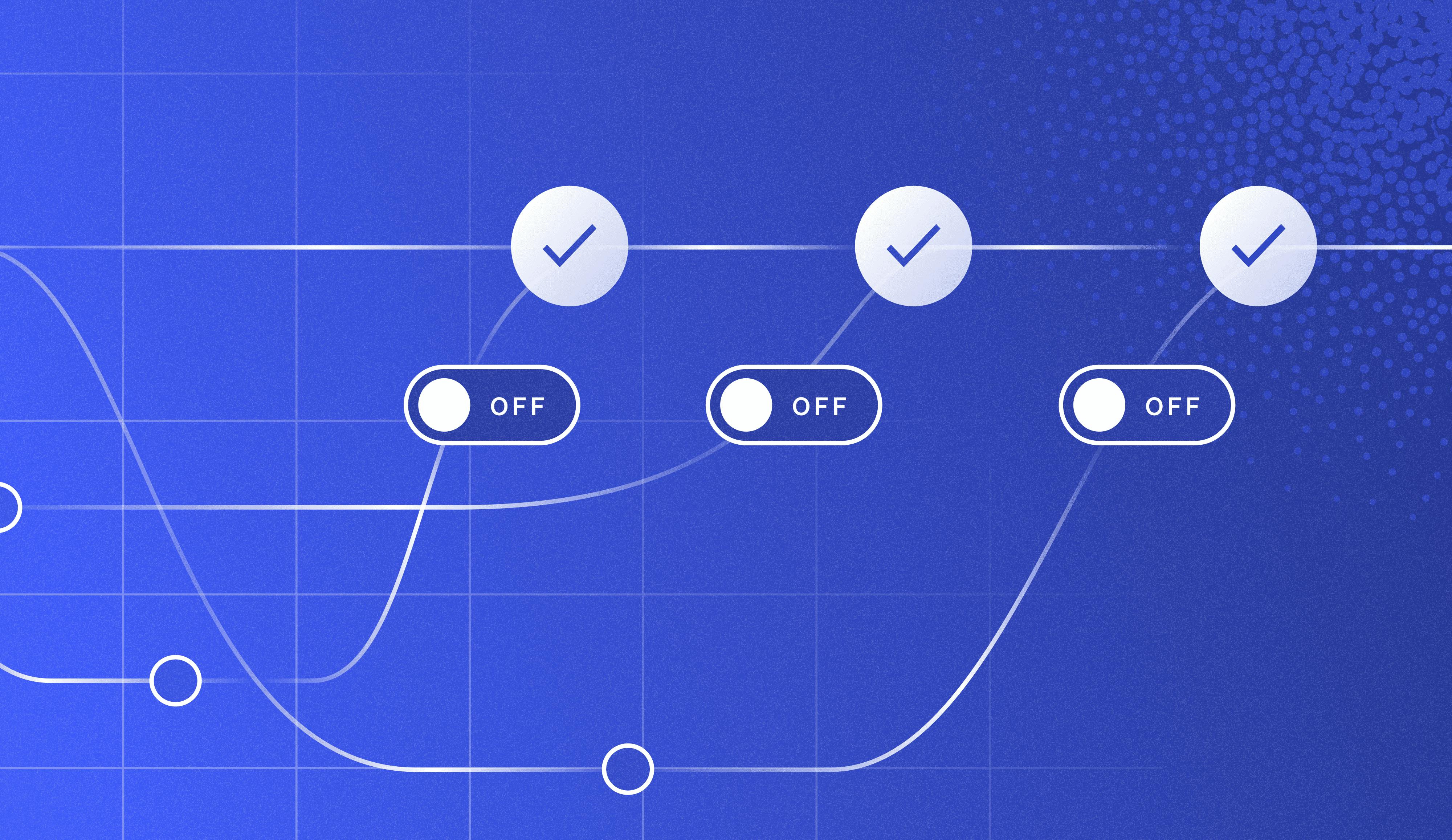In today's digital age, version control systems have become indispensable tools for developers, project managers, and even political campaigns. Git, in particular, has emerged as the most popular version control system, revolutionizing how teams collaborate and manage code. Interestingly, the term "Trump Git" has gained traction in recent years, blending the world of politics with technology. This article will explore the intersection of these two worlds, providing valuable insights into how Git principles can be applied to political campaigns and beyond.
The rise of digital campaigning has transformed how political organizations operate, with technology playing a crucial role in managing vast amounts of data and coordinating complex operations. As we delve deeper into this topic, we'll discover how version control systems like Git can enhance transparency, accountability, and efficiency in political environments. From managing campaign materials to tracking policy changes, Git offers numerous applications that extend far beyond traditional software development.
Throughout this comprehensive guide, we'll examine the fundamental principles of Git, explore its potential applications in political contexts, and analyze real-world examples of how version control systems have been implemented in modern political campaigns. Whether you're a developer interested in politics or a political enthusiast curious about technology, this article will provide valuable insights into the fascinating intersection of these two worlds.
Read also:Vince Papele The Ultimate Guide To His Life Career And Legacy
Table of Contents
- Understanding Git: The Foundation of Modern Version Control
- How Git Principles Apply to Political Campaigns
- The Trump Campaign's Technological Infrastructure
- Version Control in Political Contexts
- Implementing Git in Political Organizations
- Data Management and Tracking with Git
- Enhancing Collaboration Through Git
- Security Considerations in Political Git Usage
- Future Applications of Version Control in Politics
- Conclusion and Call to Action
Understanding Git: The Foundation of Modern Version Control
Git, created by Linus Torvalds in 2005, has revolutionized the way developers manage code changes. At its core, Git is a distributed version control system that allows multiple developers to work on the same project simultaneously without conflicts. The system's architecture is built around three main states: working directory, staging area, and repository, each serving a specific purpose in the version control process.
One of Git's most powerful features is its branching and merging capabilities. These features enable teams to work on different features or bug fixes simultaneously, creating separate branches that can later be merged back into the main codebase. This functionality has significant implications for political campaigns, where multiple teams might be working on different aspects of campaign materials, policy documents, or communication strategies.
Key Git Concepts
- Commits: Snapshots of changes at specific points in time
- Branches: Independent lines of development
- Repositories: Complete history of project changes
- Staging Area: Intermediate area for preparing commits
- Remote Repositories: Shared repositories for team collaboration
How Git Principles Apply to Political Campaigns
The principles underlying Git can be directly applied to political campaigns, particularly in managing campaign materials and tracking changes. Just as developers track code changes, political campaigns can use version control to manage speeches, policy documents, and marketing materials. This approach ensures that every modification is documented, allowing campaign managers to review changes and maintain consistency across different channels.
Consider the 2016 and 2020 Trump campaigns, which heavily relied on digital infrastructure to manage their operations. While specific details about their exact version control systems aren't publicly available, the principles of version control were certainly evident in their approach to managing campaign materials. The ability to track changes, maintain different versions of documents, and collaborate across teams is crucial in high-stakes political environments.
Benefits of Version Control in Campaigns
- Improved document management and tracking
- Enhanced collaboration across campaign teams
- Increased transparency in decision-making processes
- Reduced risk of conflicting or outdated information
- Comprehensive audit trail of all changes
The Trump Campaign's Technological Infrastructure
The Trump campaigns of 2016 and 2020 demonstrated a sophisticated approach to technology and data management. While the specific implementation of version control systems like Git isn't publicly documented, the campaign's technological infrastructure shared many principles with modern version control systems. The campaign's digital team, led by key figures like Brad Parscale and later Jared Kushner, developed a comprehensive system for managing voter data, campaign materials, and digital assets.
The Trump campaign's approach to technology was characterized by its emphasis on data-driven decision-making and rapid iteration. This methodology aligns closely with Git's principles of continuous improvement and version tracking. The campaign's ability to quickly adapt messaging, test different strategies, and maintain consistency across various platforms demonstrates the practical application of version control concepts in political contexts.
Read also:Ullu Web Series Movie Download Movierulz A Comprehensive Guide
Technological Innovations in Trump's Campaign
- Advanced data analytics and targeting systems
- Centralized digital asset management
- Real-time performance tracking
- Integrated communication platforms
- Scalable infrastructure for rapid deployment
Version Control in Political Contexts
The application of version control systems in political environments extends far beyond managing campaign materials. Governments and political organizations worldwide are increasingly adopting version control principles to manage legislation, policy documents, and public records. This trend reflects a growing recognition of the importance of transparency, accountability, and efficient collaboration in political processes.
Several government initiatives have successfully implemented version control systems to manage legislative processes. For example, the U.S. government's use of GitHub for open-source projects and legislative tracking demonstrates how version control can enhance public participation and transparency in government operations. These implementations show that version control systems can be adapted to manage complex political processes while maintaining security and integrity.
Examples of Version Control in Politics
- U.S. government's open-source initiatives on GitHub
- European Parliament's document management systems
- Local government transparency portals
- Policy tracking and analysis platforms
- Public participation in legislative drafting
Implementing Git in Political Organizations
While implementing Git in political organizations presents unique challenges, the benefits far outweigh the initial investment. The first step involves assessing the organization's specific needs and identifying areas where version control can provide the most value. This assessment should consider factors such as document management requirements, team collaboration needs, and security considerations.
The implementation process typically involves several key steps: establishing a centralized repository structure, defining access control policies, and developing workflow procedures. Training staff members on Git fundamentals is crucial, as is creating clear documentation for common tasks and procedures. Political organizations should also consider implementing additional security measures to protect sensitive information while maintaining the benefits of version control.
Implementation Steps
- Conduct needs assessment and requirements gathering
- Set up secure repository infrastructure
- Define access control and permission policies
- Develop standardized workflows and procedures
- Implement training programs for staff members
Data Management and Tracking with Git
Effective data management is crucial for political organizations, and Git offers powerful tools for tracking changes and maintaining data integrity. The system's ability to create detailed audit trails of all modifications makes it particularly valuable in political contexts where accountability and transparency are paramount. Git's distributed nature also provides additional security benefits, as multiple copies of repositories can be maintained across different locations.
Political organizations can leverage Git's features to manage various types of data, including voter information, policy documents, and communication materials. The system's ability to handle large datasets and maintain version history ensures that organizations can track changes, revert to previous versions if necessary, and maintain comprehensive records of all modifications. This capability is especially valuable in YMYL (Your Money or Your Life) contexts where accuracy and accountability are critical.
Data Management Best Practices
- Implement regular backup procedures
- Establish clear documentation standards
- Use branching strategies for different data types
- Maintain comprehensive commit messages
- Regularly review and clean repository history
Enhancing Collaboration Through Git
Collaboration is at the heart of both software development and political campaigns, making Git's collaboration features particularly relevant in political contexts. The system's ability to manage concurrent changes, resolve conflicts, and maintain clear communication channels enhances team productivity and ensures consistency across different departments and teams.
Political organizations can utilize Git's collaboration tools to streamline workflows and improve communication. Features like pull requests, code reviews, and issue tracking can be adapted for managing campaign materials, policy documents, and other collaborative projects. These tools not only improve efficiency but also enhance accountability and transparency in decision-making processes.
Collaboration Features
- Pull requests for change proposals
- Code review and approval workflows
- Issue tracking and task management
- Discussion threads for collaboration
- Integration with other project management tools
Security Considerations in Political Git Usage
While Git offers numerous benefits for political organizations, security remains a critical concern, especially in YMYL contexts. The system's distributed nature provides some inherent security advantages, but additional measures must be implemented to protect sensitive information. Political organizations must carefully consider access control policies, encryption standards, and data protection regulations when implementing Git systems.
Best practices for securing Git repositories in political contexts include implementing two-factor authentication, maintaining strict access control policies, and regularly auditing repository activity. Organizations should also consider using private repositories and implementing additional encryption measures for sensitive data. Regular security audits and vulnerability assessments are essential to maintaining the integrity and confidentiality of political information managed through Git systems.
Security Best Practices
- Implement two-factor authentication
- Use private repositories for sensitive data
- Maintain strict access control policies
- Regularly audit repository activity
- Implement additional encryption measures
Future Applications of Version Control in Politics
The future of version control in political contexts looks promising, with emerging technologies and trends suggesting new possibilities for Git and similar systems. Artificial intelligence and machine learning are increasingly being integrated with version control systems, offering enhanced capabilities for analyzing changes, predicting conflicts, and optimizing workflows. These advancements could revolutionize how political organizations manage information and make decisions.
Blockchain technology also presents exciting possibilities for version control in politics. The combination of blockchain's immutable ledger with Git's version tracking capabilities could create unprecedented levels of transparency and accountability in political processes. This integration could enable verifiable records of all changes, from policy documents to legislative drafts, providing citizens with unprecedented access to the decision-making process.
Emerging Trends
- AI-powered change analysis
- Blockchain integration for enhanced security
- Advanced analytics for version history
- Improved user interfaces for non-technical users
- Increased adoption in government agencies
Conclusion and Call to Action
Throughout this comprehensive guide, we've explored how Git principles can be applied to political contexts, particularly in managing campaign materials and tracking changes. From understanding the fundamental concepts of version control to examining real-world applications in political campaigns, we've seen how technology can enhance transparency, accountability, and efficiency in political environments.
The intersection of technology and politics continues to evolve, presenting new opportunities for innovation and improvement. As political organizations increasingly adopt digital tools and methodologies, the principles of version control will become even more relevant. We encourage readers to share their thoughts and experiences in the comments below, and to explore how version control systems could benefit their own organizations.
For those interested in learning more about version control and its applications, we recommend exploring our other articles on technology in politics and digital campaign management. Your insights and experiences could help shape the future of political technology and contribute to more transparent, accountable governance.

